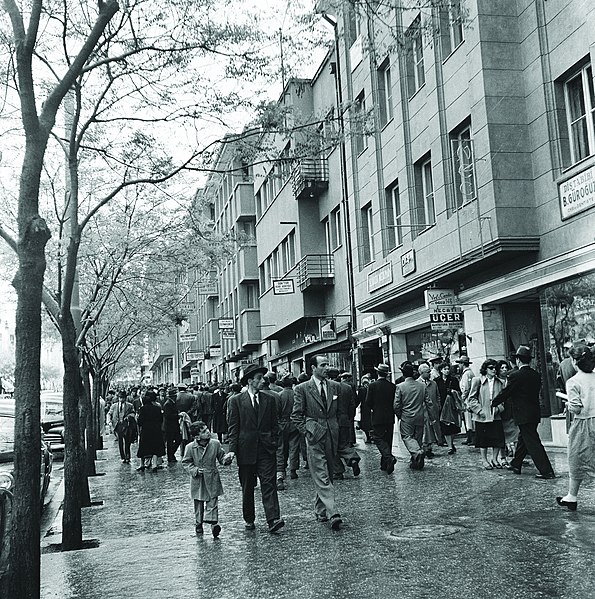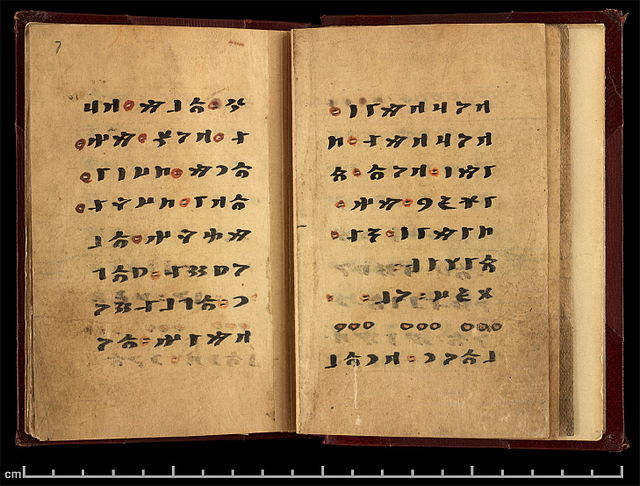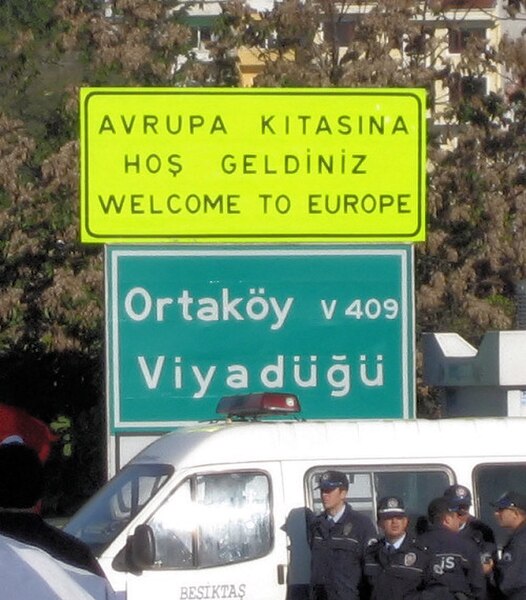Turkish people or Turks are the largest Turkic people who speak various dialects of the Turkish language and form a majority in Turkey and Northern Cyprus. In addition, centuries-old ethnic Turkish communities still live across other former territories of the Ottoman Empire. Article 66 of the Turkish Constitution defines a Turk as anyone who is a citizen of Turkey. While the legal use of the term Turkish as it pertains to a citizen of Turkey is different from the term's ethnic definition, the majority of the Turkish population are of Turkish ethnicity. The vast majority of Turks are Muslims and follow the Sunni and Alevi faith.
The Sogdian trader An Jia (right) brokering an alliance with Turks (left). 579 CE, Tomb of An Jia, Xi’an, China.
West Thrace Republic, Turks in Kardzali
The loss of almost all Ottoman territories during the late 19th and early 20th centuries, and the establishment of the Republic of Turkey, in 1923, produced waves of Turkish refugees, who were known as "Muhacirs", who fled from hostile regions of the Balkans, the Black Sea, the Aegean islands, the island of Cyprus, the Sanjak of Alexandretta, the Middle East, and the Soviet Union to migrate to Anatolia and Eastern Thrace.
People on the Anafartalar Boulevard, Ankara in the 1950s
Turkish is the most widely spoken of the Turkic languages, with around 90 to 100 million speakers. It is the national language of Turkey and Northern Cyprus. Significant smaller groups of Turkish speakers also exist in Germany, Austria, Bulgaria, North Macedonia, Greece, Cyprus, other parts of Europe, the South Caucasus, and some parts of Central Asia, Iraq, and Syria. Turkish is the 18th most spoken language in the world.
The 9th-century Irk Bitig or "Book of Divination"
The 15th century Book of Dede Korkut
An advertisement by the IKEA branch in Berlin written in the German and Turkish languages.
Road sign at the European end of the Bosphorus Bridge in Istanbul. (Photo taken during the 28th Istanbul Marathon in 2006)








